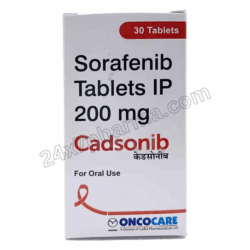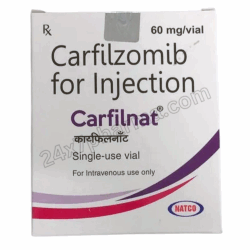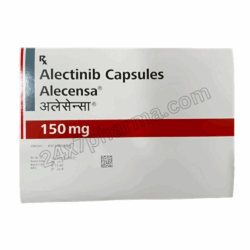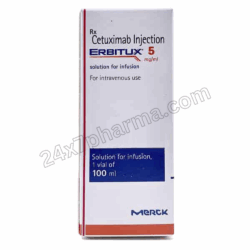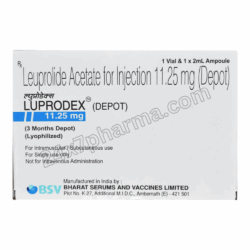About CALQUENCE 100mg Capsule
CALQUENCE 100mg Capsule is taken orally, preferably with food or between meals. It should be used in the dose and duration prescribed by your doctor. It is advised to take this medicine at a fixed time and for as long as the doctor prescribes to avoid missing a dose. It may take several weeks or months for you to see or feel the benefits.
The most common side effects of CALQUENCE 100mg Capsule include anemia, neutropenia, upper respiratory tract infection, thrombocytopenia, headache, diarrhea, and musculoskeletal pain. If these bother you or appear serious, let your doctor know as they might suggest ways of reducing or preventing these side effects.
Inform your doctor if you have a medical history of bleeding disorders, heart or liver disease, radiation treatment, or any infection. The risk of bleeding may increase if the patient is taking a blood thinner medicine along with CALQUENCE 100mg Capsule. Many other medicines can affect or be affected by this medicine, so let your doctor know of all the medications you are using. Inform the doctor immediately if unusual bruising or bleeding or dark, tarry, or bloody stools and sore throat are noticed.
This medicine is known to reduce the number of blood cells in your blood, thereby increasing the susceptibility to infections. Regular blood tests are required to check the blood cell count along with the kidneys, liver, and heart functions during the treatment with this medicine. The use of effective contraception by both males and females during the treatment is important to avoid pregnancy.
Uses Of CALQUENCE 100mg Capsule
- Treatment of Blood cancer
Benefits Of CALQUENCE 100mg Capsule
In Treatment of Blood cancer
Side Effects Of CALQUENCE 100mg Capsule
Common side effects of CALQUENCE
- Anemia (low number of red blood cells)
- Decreased white blood cell count (neutrophils)
- Upper respiratory tract infection
- Low blood platelets
- Headache
- Diarrhea
- Musculoskeletal (bone, muscle or joint) pain


